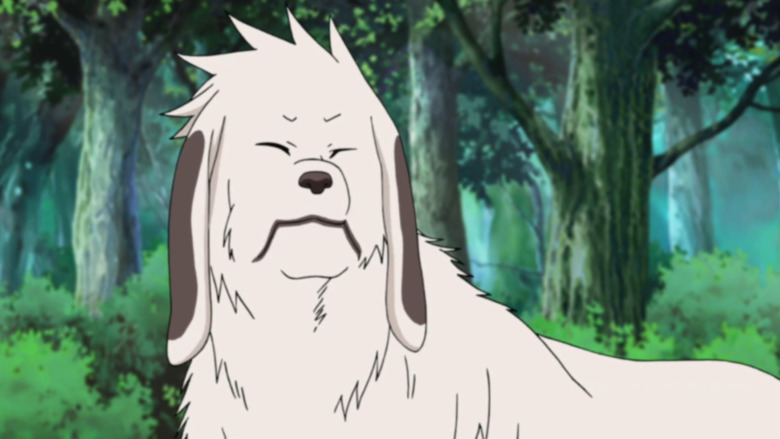The Biggest Problem With The Summoning Jutsus In Naruto
Superpowered ninjas are par for the course in the fictional world in which "Naruto" takes place. Over the course of the popular manga adaptation's extensive story, the series' central team of protagonists from Konohagakure village come into contact with ninjas both good and bad capable of seemingly any feat under the sun.
Guy, for example, is incapable of traditional jutsu (a broad term referring to magical abilities in "Naruto"), so he instead enhances his physical abilities to the extent that he can rival even those with magic. Uchiha clan patriarch Madara, by contrast, knows how to wield all 52 jutsus known in Naruto's fictional world. That means he's capable of manipulating gravity, controlling virtually every element, seeing the near future with his signature Sharingan ability, and plenty more.
Some abilities, like Guy's taijutsu (or manipulation of physical strength) can theoretically be learned by most ninja, but nevertheless represent the result of extensive training. Other abilities, like Madara's Sharingan, are hereditary in nature, meaning that only those with Uchiha blood, for example, can even attempt to wield them.
Summoning jutsus fall into the former category. They are a staple of many ninja arsenals on "Naruto." The technique broadly refers to an ability that allows ninjas to summon an animal to their present location. The skill is used so frequently throughout "Naruto" that the list of summoning jutsu users is more than 50 names in length. That said, in spite of its ubiquity, the technique is flawed from a legal and philosophical standpoint.
The validity of summoning jutsu contracts is legally questionable
Summoning jutsus only allow their users to summon animals with which they have entered into a contract. That contract is required any time the user wants to call forth their desired animal.
The fact that summoning jutsus rely on contracts, then, begs the question of why an animal would willingly enter into one in the first place. The very premise of a contract requires that both parties reach a meeting of the minds on a predetermined set of terms that may convey reciprocal rights and obligations. In this case, the contracted animal would have to willingly enter into an agreement that could see them transported to a dangerous location at virtually any point in time. Moreover, the common law of contracts (which, admittedly, postdates the relative time period of "Naruto") requires some form of consideration from each contracting party in order for the contract to be enforceable. Even if we can assume the animals in question enter into their jutsu contracts of their own free will, without coercion, what reciprocal contribution does the contracting ninja offer in consideration of the services to be rendered? No consideration, no contract.
Some animals in "Naruto," like Akamaru or the White Snake Sage, are shown to be intelligent, so they're certainly of sound enough mind to enter into such an agreement. The issue of proper consideration on the part of the ninja remains, however.

